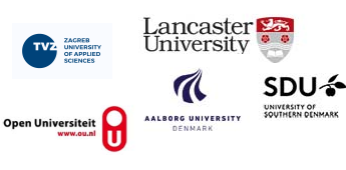

From Not-working to Node-working: Designing a Professional Learning Network
Mandia Mentis1, Alison Kearney2, Wendy Holley-Boen1
1Massey University, Auckland, New Zealand. 2Massey University, Palmerston North, New Zealand.
Keywords
Networked learning, professional learning, communities of practice, digital badging, ePortfolios
Abstract
The space and pace of learning is changing. Traditional professional learning and development courses – with defined content in a set place and time – are arguably not working for many, as they are linked to outmoded approaches to learning. As societies have evolved from an industrial, to information and then social-age, we have shifted our understandings of learning and teaching. This shift is from disseminating information in formal institutions, towards open access to knowledge via the web. Current notions appreciate that learning is continual through our interconnections with others, as we co-create, communicate and collaborate. The shifts to conceptualising learning as open, continuous and social has a flow on effect of disrupting how we conceptualise professional identity development, and ongoing professional learning. Professional learning increasingly involves co-constructing knowledge with others in learning networks across different contexts and time. New technologies such as digital badging and ePortfolios afford opportunities to make learning more visible, and allow learners to collect evidence of their learning in network, which can be seen as learning nodes. These nodes can be acknowledged as evidence of ongoing professional learning and credentialed as such. Linking learning nodes within and across related networks enables mapping and integrating learning that is both personalised and social, informal and formal, as well as open and accredited. This short paper outlines a new professional learning initiative being introduced in New Zealand that is designed around networking and ‘node-working’. The initiative is for Special Education Needs Coordinators (SENCo), teachers who provide learning support to include all students in school. The professional network for SENCos consists of four learning hubs. Hub one is an open network where SENCos connect and collaborate with each other, face-to-face and online, regionally and nationally. In Hub two SENCos can subscribe to a professional network and join journal clubs, collaborative research projects, webinars, and share evidence-based practice. Hub three uses digital badging to recognise the personalised and collaborative learning that occurs in Hubs one and two, thus creating learning nodes as markers for credentialing learning across the network. Hub four allows for these learning nodes to be mapped within a professional e-portfolio, as part of a formal qualification. The research behind this initiative investigates the effectiveness of networked nodes of learning and the potential it offers to revision professional learning and identity development.
Joint Organising Institutions
Open University of The Netherlands
| Past Conference Proceedings | Contact |